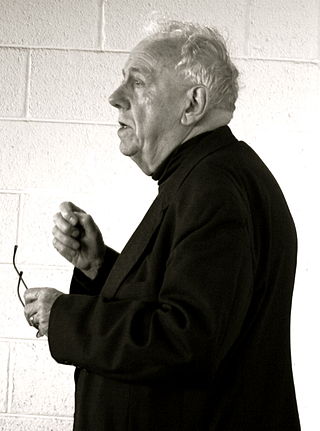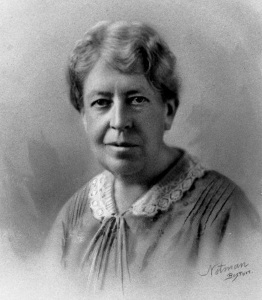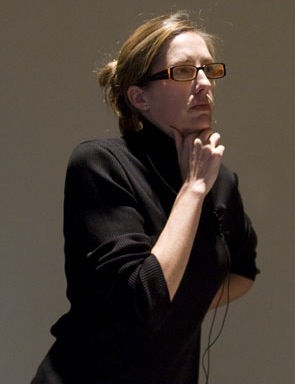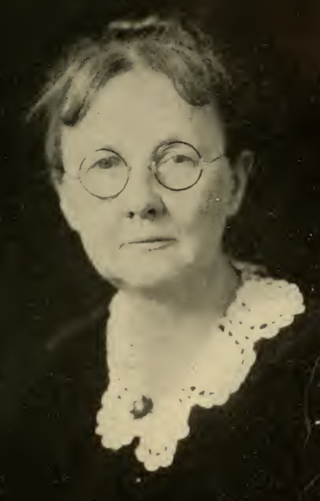Related Research Articles
Applied ethics is the practical aspect of moral considerations. It is ethics with respect to real-world actions and their moral considerations in private and public life, the professions, health, technology, law, and leadership. For example, bioethics is concerned with identifying the best approach to moral issues in the life sciences, such as euthanasia, the allocation of scarce health resources, or the use of human embryos in research. Environmental ethics is concerned with ecological issues such as the responsibility of government and corporations to clean up pollution. Business ethics includes the duties of whistleblowers to the public and to their employers.
Euthanasia is the practice of intentionally ending life to eliminate pain and suffering.

Peter Albert David Singer is an Australian moral philosopher who is Emeritus Ira W. DeCamp Professor of Bioethics at Princeton University. Singer's work specialises in applied ethics, approaching the subject from a secular, utilitarian perspective. He wrote the book Animal Liberation (1975), in which he argues for vegetarianism, and the essay "Famine, Affluence, and Morality", which argues the moral imperative of donating to help the poor around the world. For most of his career, he was a preference utilitarian. He revealed in The Point of View of the Universe (2014), coauthored with Katarzyna de Lazari-Radek, that he had become a hedonistic utilitarian.

John Henry McDowell is a South African philosopher, formerly a fellow of University College, Oxford, and now university professor at the University of Pittsburgh. Although he has written on metaphysics, epistemology, ancient philosophy, nature, and meta-ethics, McDowell's most influential work has been in the philosophy of mind and philosophy of language. McDowell was one of three recipients of the 2010 Andrew W. Mellon Foundation's Distinguished Achievement Award, and is a Fellow of both the American Academy of Arts & Sciences and the British Academy.

The principle of double effect – also known as the rule of double effect, the doctrine of double effect, often abbreviated as DDE or PDE, double-effect reasoning, or simply double effect – is a set of ethical criteria which Christian philosophers have advocated for evaluating the permissibility of acting when one's otherwise legitimate act may also cause an effect one would otherwise be obliged to avoid. The first known example of double-effect reasoning is Thomas Aquinas' treatment of homicidal self-defense, in his work Summa Theologica.

Virtue ethics is a philosophical approach that treats virtue and character as the primary subjects of ethics, in contrast to other ethical systems that put consequences of voluntary acts, principles or rules of conduct, or obedience to divine authority in the primary role.

Aristotelianism is a philosophical tradition inspired by the work of Aristotle, usually characterized by deductive logic and an analytic inductive method in the study of natural philosophy and metaphysics. It covers the treatment of the social sciences under a system of natural law. It answers why-questions by a scheme of four causes, including purpose or teleology, and emphasizes virtue ethics. Aristotle and his school wrote tractates on physics, biology, metaphysics, logic, ethics, aesthetics, poetry, theatre, music, rhetoric, psychology, linguistics, economics, politics, and government. Any school of thought that takes one of Aristotle's distinctive positions as its starting point can be considered "Aristotelian" in the widest sense. This means that different Aristotelian theories may not have much in common as far as their actual content is concerned besides their shared reference to Aristotle.

Alasdair Chalmers MacIntyre is a Scottish-American philosopher who has contributed to moral and political philosophy as well as history of philosophy and theology. MacIntyre's After Virtue (1981) is one of the most important works of Anglophone moral and political philosophy in the 20th century. He is senior research fellow at the Centre for Contemporary Aristotelian Studies in Ethics and Politics (CASEP) at London Metropolitan University, emeritus Professor of Philosophy at the University of Notre Dame, and permanent senior distinguished research fellow at the Notre Dame Center for Ethics and Culture. During his lengthy academic career, he also taught at Brandeis University, Duke University, Vanderbilt University, and Boston University.

Mary Whiton Calkins was an American philosopher and psychologist, whose work informed theory and research of memory, dreams and the self. In 1903, Calkins was the twelfth in a listing of fifty psychologists with the most merit, chosen by her peers. Calkins was refused a Ph.D. by Harvard University because of her gender.

John Mitchell Finnis is an Australian legal philosopher and jurist specializing in jurisprudence and the philosophy of law. He is an original interpreter of Aristotle and Aquinas, and counts Germain Grisez as a major influence and collaborator. He has made contributions to epistemology, metaphysics, and moral philosophy.
Voluntary euthanasia is the purposeful ending of another person's life at their request, in order to relieve them of suffering. Voluntary euthanasia and physician-assisted suicide (PAS) have been the focus of intense debate in the 21st century, surrounding the idea of a right to die. Some forms of voluntary euthanasia are legal in Australia, Belgium, Canada, Colombia, Luxembourg, the Netherlands, New Zealand, and Spain.
Jonathan Glover is a British philosopher known for his books and studies on ethics. He currently teaches ethics at King's College London. Glover is a fellow of the Hastings Center, an independent bioethics research institution in the United States, and is a Distinguished Research Fellow at the Oxford Uehiro Centre for Practical Ethics.

James Webster Rachels was an American philosopher who specialized in ethics and animal rights.
Len Doyal FRSA FRSocMed is emeritus professor of medical ethics at Queen Mary, University of London and a medical ethicist. He was born in Atlanta, Georgia in 1944 and studied philosophy and sociology at Georgia State University, earning his undergraduate degree in 1966. That same year he was awarded a Fulbright Scholarship to study with Karl Popper at the London School of Economics.
American philosophy is the activity, corpus, and tradition of philosophers affiliated with the United States. The Internet Encyclopedia of Philosophy notes that while it lacks a "core of defining features, American Philosophy can nevertheless be seen as both reflecting and shaping collective American identity over the history of the nation". The philosophy of the Founding Fathers of the United States is largely seen as an extension of the European Enlightenment. A small number of philosophies are known as American in origin, namely pragmatism and transcendentalism, with their most prominent proponents being the philosophers William James and Ralph Waldo Emerson respectively.
David Simon Oderberg is an Australian philosopher of metaphysics and ethics based in Britain since 1987. He is Professor of Philosophy at the University of Reading. He describes himself as a non-consequentialist or a traditionalist in his works. Broadly speaking, Oderberg places himself in opposition to Peter Singer and other utilitarian or consequentialist thinkers. He has published over thirty academic papers and has authored six books: The Metaphysics of Good and Evil, Opting Out: Conscience and Cooperation in a Pluralistic Society, Real Essentialism, Applied Ethics, Moral Theory, and The Metaphysics of Identity over Time. Professor Oderberg is an alumnus of the Universities of Melbourne, where he completed his first degrees, and Oxford where he gained his D.Phil.

Pamela Hieronymi is an American philosopher who is professor of philosophy at the University of California, Los Angeles. She is mainly known for her work in moral psychology.
Alison Mary Jaggar is an American feminist philosopher born in England. She is College Professor of Distinction in the Philosophy and Women and Gender Studies departments at the University of Colorado, Boulder and Distinguished Research Professor at the University of Birmingham in the United Kingdom. She was one of the first people to introduce feminist concerns in to philosophy.

Eleanor Acheson McCulloch Gamble was an influential American psychologist from the late 19th century through the early 20th century. Gamble published most of her work on audition and memory influenced by Georg Elias Müller, Edward B. Titchener, Mary Whiton Calkins, and Ernst Heinrich Weber. Despite her chronic eye conditions she was successful in editing volumes of textbooks, her own papers, and directing many master's degree students. She earned her undergraduate degree from Wellesley College in 1889. She went on to obtain her doctorate from Cornell University in 1898. She held several teaching positions over the course of her career and was a member of several influential organizations including the American Psychological Association (APA). Gamble was a distinguished and well-liked professor at Wellesley College for more than two decades, and by 1930 she was the head of the Department of Philosophy and Psychology following the death of Mary Whiton Calkins. At the time of her death she was professor of psychology and director of the psychological laboratory at Wellesley College.
Sophie Grace Chappell is an English philosopher, academic, and poet. Since 2006, she has been a professor of philosophy at the Open University.
References
- 1 2 3 4 5 "Alison McIntyre | Wellesley College". Wellesley College. Retrieved 30 March 2014.
- ↑ Young, Robert (29 March 2010). Voluntary Euthanasia. Stanford Encyclopedia of Philosophy.
- ↑ Jackson, Frank; Smith, Michael (2007). The Oxford handbook of contemporary philosophy (1st publ. in pbk. ed.). Oxford: Oxford University Press. ISBN 9780199234769.